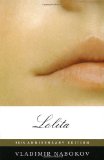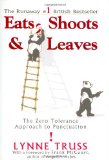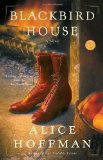Help!
I’m looking for Anne who used to have a domain at Fishbucket. Do any of you know where to find her? I miss reading her!
Help!
I’m looking for Anne who used to have a domain at Fishbucket. Do any of you know where to find her? I miss reading her!
Learn more.
I’m sorry if you’ve been trying to access any pages on PlanetHuff.com (including this one) over the last couple of days. Tech support appears to have fixed the problem, but I don’t understand what it was — I thought I spoke Geek pretty well, but I’m obviously not fluent.
If you continue to have problems viewing the web sites on this domain, please contact either Steve or me by e-mail (remove the (AT) and replace with @).

 If at times Lolita is difficult to wade through, I suppose the reader can chalk that up to the narrator’s admitted psychiatric problems. This book was hard to finish on many levels. First of all, the language itself is dense and beautiful, but requires the constant attention of the reader. I was unable to simply flip through pages, and I often had to go back and re-read things I’d missed. I wish I had a footnoted copy of this book in order to translate all the French I’ve forgotten since high school, as Humbert was so fond of throwing French speech into the narrative. Second, the narrator is absolutely despicable and reprehensible. I have to say that anyone who uses the term “Lolita” to refer to a sexually-aggressive female adolescent probably has not read this book. It is clear that poor Lolita is very much a victim of Humbert Humbert — a point made clear even though it is told only through his point of view. He is an unreliable narrator. His language, his intelligence are meant to beautify his actions and evoke sympathy from the reader, and a quick glance at several Amazon reviews for this book demonstrate that many readers do fall for his story. Humbert Humbert is a creepy pedophile, even if he is gifted with language. He admits to hanging out in places where he is likely to see girls in his target “attraction range,” which is a trait common to pedophiles. He is unattracted to girls or women of any other age range.
If at times Lolita is difficult to wade through, I suppose the reader can chalk that up to the narrator’s admitted psychiatric problems. This book was hard to finish on many levels. First of all, the language itself is dense and beautiful, but requires the constant attention of the reader. I was unable to simply flip through pages, and I often had to go back and re-read things I’d missed. I wish I had a footnoted copy of this book in order to translate all the French I’ve forgotten since high school, as Humbert was so fond of throwing French speech into the narrative. Second, the narrator is absolutely despicable and reprehensible. I have to say that anyone who uses the term “Lolita” to refer to a sexually-aggressive female adolescent probably has not read this book. It is clear that poor Lolita is very much a victim of Humbert Humbert — a point made clear even though it is told only through his point of view. He is an unreliable narrator. His language, his intelligence are meant to beautify his actions and evoke sympathy from the reader, and a quick glance at several Amazon reviews for this book demonstrate that many readers do fall for his story. Humbert Humbert is a creepy pedophile, even if he is gifted with language. He admits to hanging out in places where he is likely to see girls in his target “attraction range,” which is a trait common to pedophiles. He is unattracted to girls or women of any other age range.
Interestingly, Nabokov’s allusions to Edgar Allan Poe’s work really made me see Poe in a new light — a sort of Humbert Humbert, if you will. As an American Literature teacher, I know Poe married his pubescent cousin. I always thought it was weird. After reading this novel, I see it as weird on a whole new level. Humbert excuses his lust for Lolita through allusions to other times, when grown men took child brides. I had always excused Poe’s behavior that way, but I find now that I don’t. Poe’s behavior was pedophiliac. Humbert christens his first love Annabel Leigh (a clear reference to Poe’s poem “Annabel Lee”). I do think a familiarity with Poe is helpful to readers of this novel.
I think this novel is open to both a literal and symbolic interpretation, which is one of the reasons it was stimulating intellectually. Humbert represents Europe — jaded, cynical, refined, intelligent, formal, but also corrupt. Lolita, on the other hand, represents America — young, uncouth, unrefined, naive. America raped and corrupted by the Old World. I think that it is an interesting way to look at the novel, and it works. As Nabokov emigrated to America, I have to wonder if the clash in cultures he experienced didn’t contribute to some of the ideas expressed in the novel.
I am glad I read this book. In a way, I feel like an initiate into a special literature club. It was really hard, though, and I wanted to smack the narrator constantly. He’s very clever, but he’s evil. I argue with the notion that this is an erotic novel. Humbert’s pedophilia is anything but erotic. I don’t see how readers could walk away from this book and feel that Nabokov was endorsing the idea that a grown man and a girl child can have a normal sexual relationship. In other words, Nabokov does not glamorize pedophilia or make it seem in any way romantic — quite the reverse. I am, however, no longer surprised that it is controversial — it astonishes me that Nabokov found a publisher for such fare in the 1950’s. The novel is beautifully written, and even funny in places, but ultimately, it is so sad — even Humbert eventually acknowledges that he ruined Lolita’s life. I think Lolita is a very good study of the mindset of a pedophile, and I shouldn’t be too surprised to learn that psychologists might study it for that reason.
I got my birthday books today. There is really nothing like brand new books, with their crisp white pages.
I have to hurry up and finish Lolita so I can read one of my new books. Which one?
Incidentally, if you heard a blurb about my school on the news, you were not hearing things. We were indeed featured on Neal Boortz’s talk show among other news outlets due to a recent brush with Fulton County Schools and eminent domain. Read about it at my education blog (“Groundbreaking” and “Eminent Domain”).
I was actually kind of impressed with the accuracy of this one:
|
Your World View |
|
You are a fairly broadminded romantic and reasonably content. You value kindness and try to live by your ideals. You have strong need for security, which may be either emotional or material. You respect truth and are flexible. You like people, and they can readily make friends with you. You are not very adventurous, but this does not bother you. |

My mother sent me what is possibly the best present I could receive for my birthday (which is tomorrow) — a Barnes and Noble gift card. I decided to spend it shopping online, because the selection is greater than at the local store, and shipping over $25 is free.
What did I get?
I made no comment yesterday in reference to 9/11. Each year on the anniversary, there has been some recognition. I don’t always write about it. Sometimes I feel like anything I could say would be feeble. How does one address such tragedy? The commemoration is always so painful, and I guess sometimes I try to avoid it. That is not something I’m proud of, by the way, especially when so many people died. After midnight, I caught the repeat of Discovery Channel’s special, Flight 93: The Flight That Fought Back. It was one of the most well-done documentaries I’ve seen, excellently narrated by Kiefer Sutherland. I don’t think that honoring the decision that people on Flight 93 made in any way detracts from what happened on the other flights — those other Americans had no idea what was happening. Flight 93 was armed with more information, which informed their decision. If you would like to donate toward creating a National Memorial to Flight 93, you can visit the National Park Foundation’s Flight 93 National Memorial information site.
On July 1, 2003, I wrote in an online diary I no longer maintain:
I finished The Hours. I haven’t seen the movie, so maybe that’s why, but I just don’t see how one could make a movie out of this book. I mean, I’ve never read a book that seemed so intensely aware of itself as a book. It was almost like the book itself was the narrator, the thread that pulled the three stories together.
My memory crafted a much longer review of the book than that, but it would seem that’s all there is. I do remember feeling as if the book was good, but not the kind of thing I’d read again, and it was certainly not an uplifting book. I finally saw the movie on A&E today. I had been wanting to see it, but I hadn’t gone out of my way to rent it or buy it, and I just never got around to it. I have to say that the movie was extremely close to the book. I think, in some ways, it was better, because the actors were so incredibly good that they gave the book a kind of life that it didn’t have, at least for me. I especially liked Ed Harris as Richard, with whom I didn’t sympathize much in the book. Of course, Meryl Streep was great, as was Nicole Kidman (whom I defy you to identify as Kidman had you not known it was her). The scene in which Virginia Woolf pockets those stones and walks into the river was particularly well done. Through the magic of movies, the intertwining stories were actually more obviously related than in the book. The director was able to cut from one story to the next more fluidly than a writer can do with a pen, I think. However, I really disliked the omnipresent, overbearing soundtrack.
I think I feel about the movie as I did about the book. I don’t think this is one I could watch over and over. I’m not sure I’d want to see it again. It isn’t that I didn’t like it or think it was well done, because neither is true. It was just… depressing, I guess.

 Alice Hoffman’s book Blackbird House is subtitled “A Novel,” but it really isn’t. It is more accurately described as a series of vignettes, as the chapters do not feel complete enough to even be called short stories. Blackbird House, set on Cape Cod, takes place at different times between the pre-Revolutionary period to the present, tracing the stories of various owners of the home across over 200 years. San Francisco Chronicle reviewer Irene Wanner accurately described Hoffman’s narrative:
Alice Hoffman’s book Blackbird House is subtitled “A Novel,” but it really isn’t. It is more accurately described as a series of vignettes, as the chapters do not feel complete enough to even be called short stories. Blackbird House, set on Cape Cod, takes place at different times between the pre-Revolutionary period to the present, tracing the stories of various owners of the home across over 200 years. San Francisco Chronicle reviewer Irene Wanner accurately described Hoffman’s narrative:
For the most part, these episodes operate without the formal short-fiction structure of conflict, climax and resolution; the book isn’t a story collection. Neither is it a traditional novel centered on a main character’s problem. Instead, setting and time serve as the book’s linking device.
I thought the idea was very intriguing, which is what caused me to purchase the book. In execution, it doesn’t work, largely because just as the reader gets to know the characters, the narrative moves on to the next story, most often introducing new characters with new stories. The reader never seems to find out the endings of any of the stories that Hoffman starts.
Hoffman weaves her narrative together with several symbols — the color red, the white blackbird, the red pear tree, and the sweet peas, most of which make an appearance in each story. I started to dread the sight of that white blackbird. In the apt words of Houston Chronicle writer Sharan McBride:
The trouble with Hoffman’s linked narrative is that tragedy and losses that seem moving and affecting early in the book begin to feel manipulative and programmed by the 12th story. And when a white blackbird appears or someone smells the wild sweet peas in the field, you know a loved one is going to get whacked as surely as you do when the camera looks up into the cold eyes of Tony Soprano.
There is too much sadness and grief, and perhaps because the reader never gets the whole story in any one of the vignettes, it is easy to wonder what purpose there is in so much tragedy. I think I just wanted more from this book, as a reader, than it felt like it was willing to give. Perhaps that was Hoffman’s goal. In the end, it seemed that the only permanent aspect of life was the house, which outlived each of her occupants, and was ultimately more interesting than all of them.
Bad Behavior has blocked 944 access attempts in the last 7 days.